We have added Created By as an optional grid column to the Manage Purchase Orders page. You can now see which user created the PO and sort the results by their emails.
Use Simple Grid For PO Serial Numbers Toolbox
We have created a new Client Setting: Use Simple Grid For PO Serial Numbers Toolbox. It controls the view of the Serial Numbers panel in the PO Toolbox. When the setting is enabled, you will see a simplified but enhanced version of the default grid that loads faster and has better filtering capabilities. We recommend using this functionality if your Purchase Orders tend to contain a large number of products and Serial Numbers.
FBA Opportunities Report Filters
You can now filter for products in our FBA Opportunities Report by SKU, ASIN, Purchaser, Dismissed Status, and whether the calculated FBA profit margin is higher than the current FBM margin.
Send Specific Orders to ShipStation
Our Integration with ShipStation allows you to configure a set of Order Filters that determine which orders are sent for fulfillment. By default, the system uses Saved Searches created in our legacy Alpha interface. Going forward, you can use an additional Custom Company Setting called ShipStation Use Delta Saved Search: when enabled, you can instead put a Saved View ID in the ShipStation Saved SearchID setting.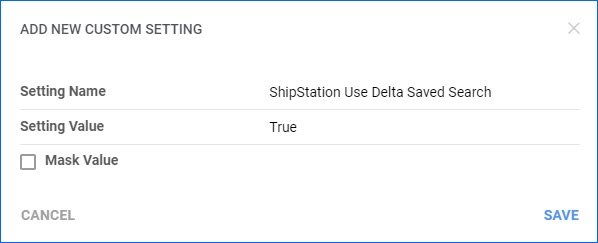
Invoice Date
The responses of Get Single Purchase Order and Get All Purchase Orders now include the Invoice Date in the invoices list of the PO.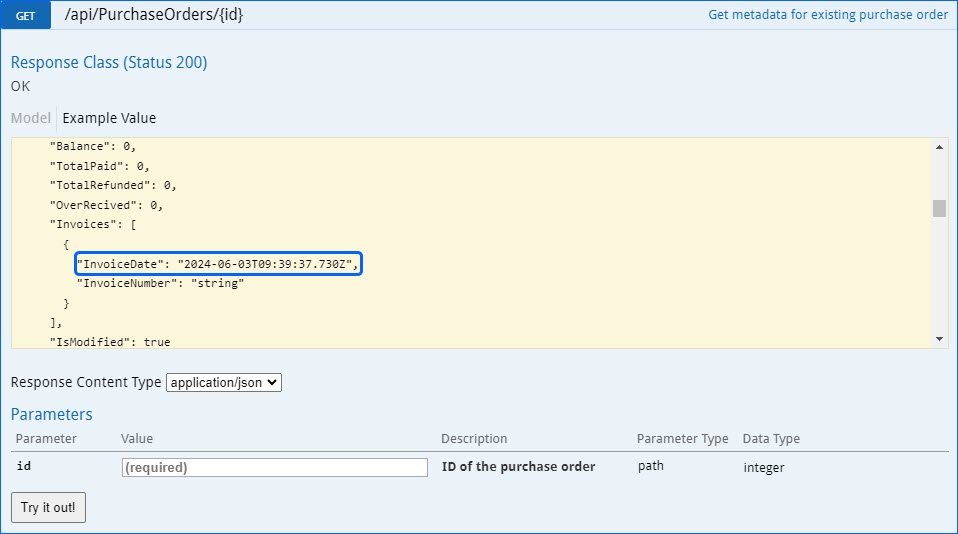
Filter by Vendor SKU
We have added a Vendor SKU filter to the Add Receive Session modal for the Vendor Invoice Reconciliation workflow. This makes it easier to identify the correct sessions if the Vendor SKUs don’t always match your Sellercloud Product IDs. Additionally, the Vendor SKU column was added in the same modal, as well as in the Existing Sessions panel on the Invoice Details page.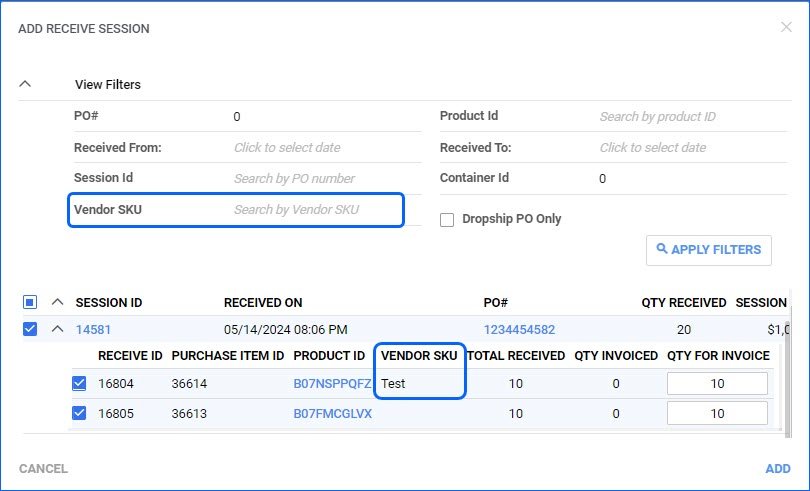
Filter by Group Name
Our Product Groups feature lets you organize and manage your listings by grouping similar products together. The Manage Product Groups page now supports filtering by Group Name for easier navigation. 
Shipping Dimensions Inconsistencies
If you have enabled the Predicted Shipping Details workflow in Sellercloud, you can now configure Shipbridge to take into account those values when using Scan and Ship. Enable the setting Check and warn for service or dimensions inconsistencies using AI to see and apply the suggestions in the Print & Ship tab.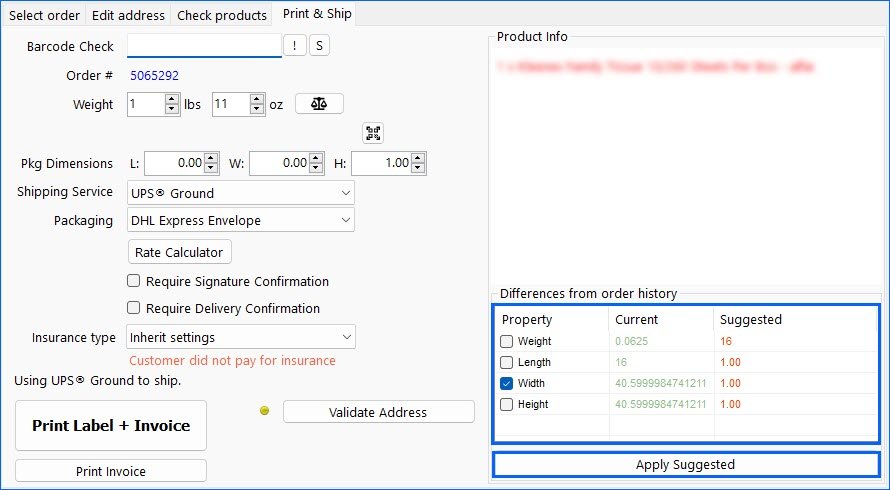
RMA Grid Columns: Channel
You can customize the results grid columns on the Manage RMAs page. We have added a new optional column for Channel, which will display the Order Source of the RMA. 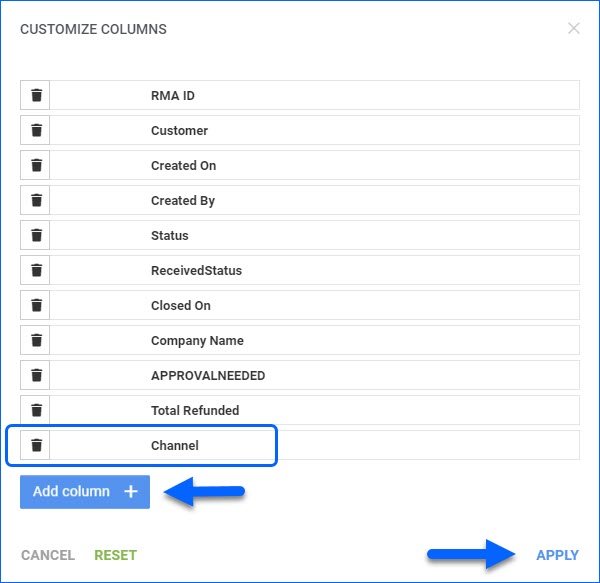
UPS OAuth 2.0 Compatibility
Shipbridge is now fully compatible with the new UPS OAuth 2.0 integration method. To ensure a smooth transition, we encourage you to update your credentials before the deadline: June 3rd, 2024.